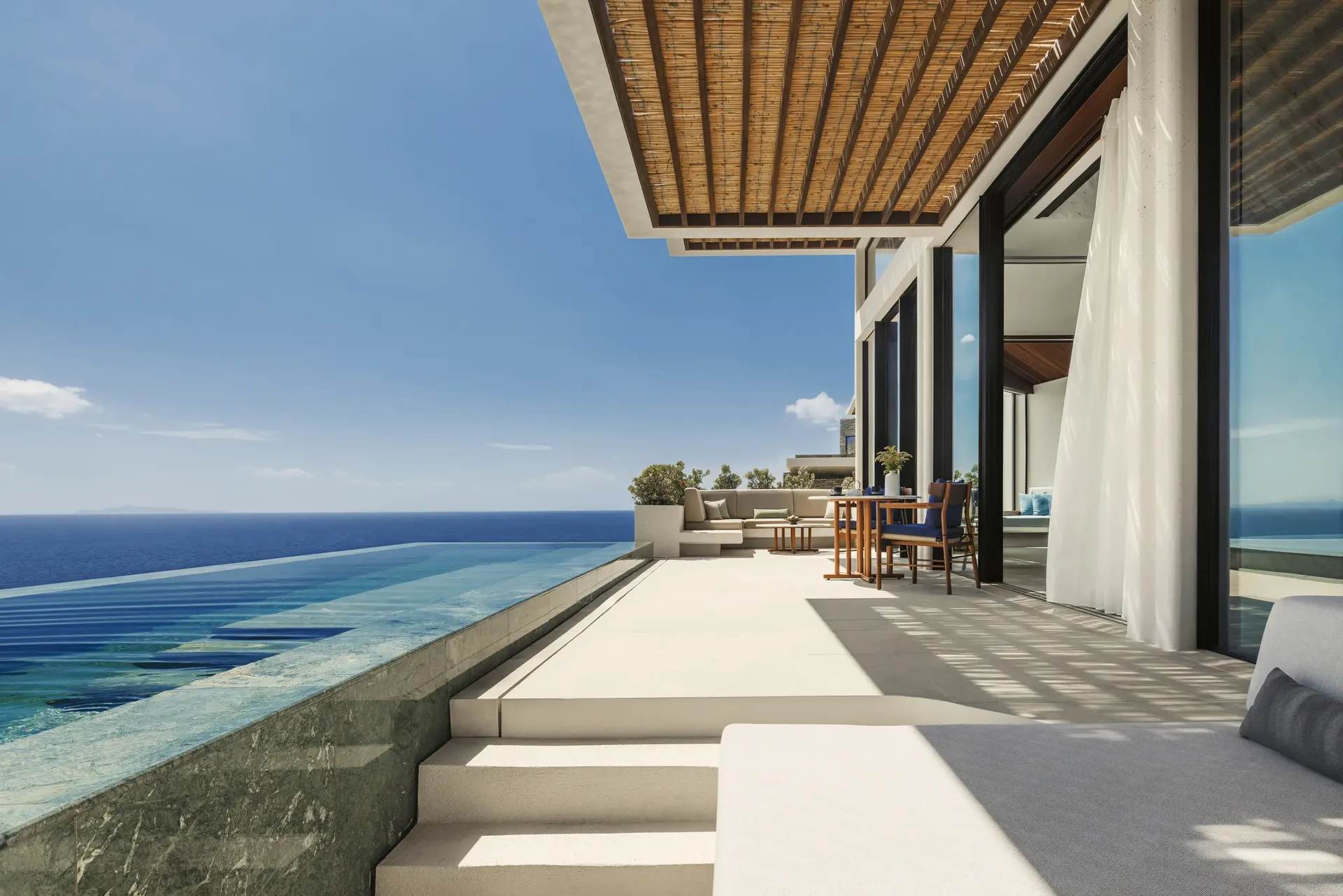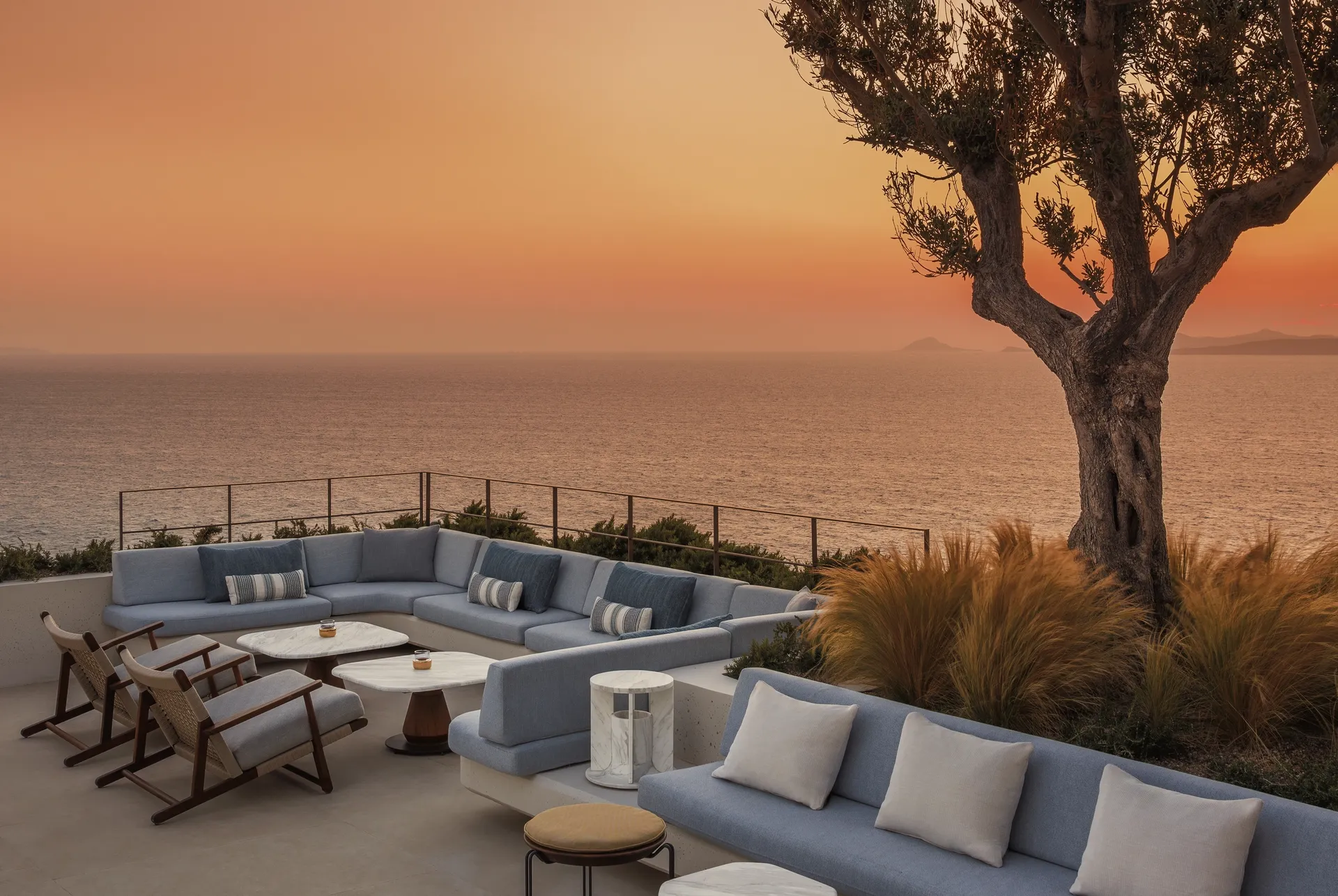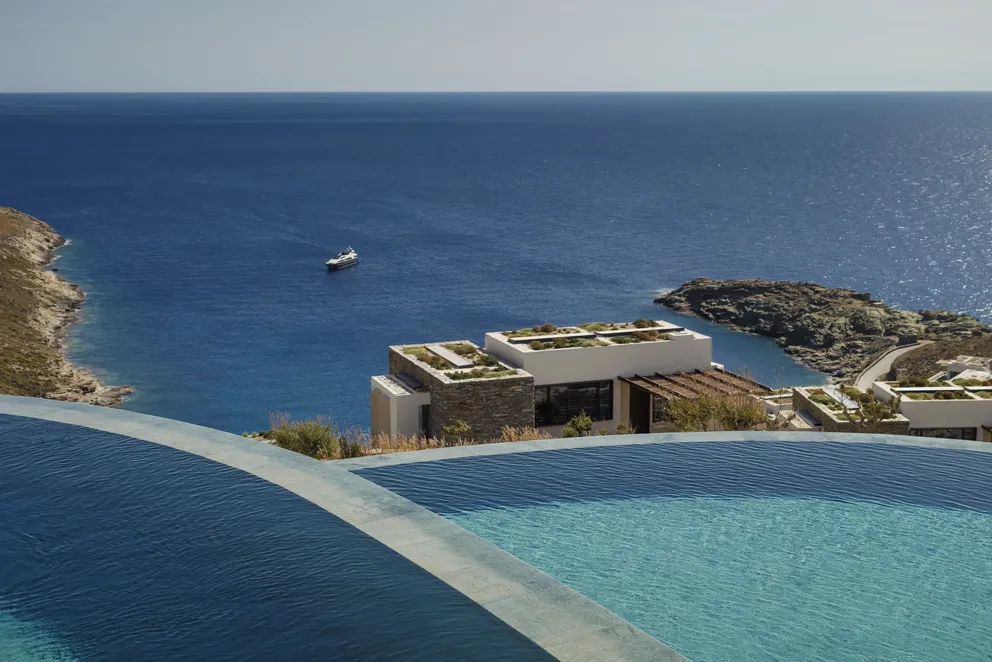
*Alkis Rasoulis Chief Legal Counsel at Dolphin Capital Partners
As we inaugurate the interview series in our newsletter, ‘The Quiet Edge’, we are delighted to open our conversations with Mr Alkiviadis Rasoulis, the Chief Legal Counsel at Dolphin Capital Partners, who brings extensive expertise and years of specialized experience in complex real estate projects and including integrated resorts.
Q: Mr Rasoulis, first of all, thank you for taking the time to speak with us and for sharing your valuable insights and experience on high-end real estate. Let’s start with the global attention that Greece’s high-end real estate market has been gaining in recent years. From your perspective, what is driving this surge in international interest, and how is it reshaping the landscape of luxury property in Greece?
Thank you Mr. Logaras. International demand is driven by a combination of lifestyle and fundamentals. Greece offers a unique mix of natural beauty, stability as an EU member state, and attractive investment conditions. The pandemic also shifted global buyer behavior: high-net-worth individuals increasingly seek “safe havens” where lifestyle and investment overlap. This has reshaped the market, pushing luxury projects into the international spotlight and positioning Greece alongside established hubs like Spain or Portugal.
Q: Branded residences were relatively late to appear in Greece’s property scene. Now, with landmark projects like One&Only Kea Island bringing ultra-luxury resort living to the country, why do you think global hospitality brands are choosing Greece now? What factors have aligned to make Greece a hotspot for these developments?
Branded residences flourish where lifestyle prestige and legal certainty meet. Greece was slower to enter this segment because, until recently, it lacked the necessary regulatory tools to support large-scale branded residential projects.
This has now changed. Several factors have aligned:
Legal Framework with Long-Term Effect:
Over the past decade, Greece introduced important instruments such as Integrated Tourism Resorts (Law 4002/2011), the Special Spatial development Plan for Public Property (ΕΣΧΑ∆Α) and the Special Spatial Development Plan for Strategic Investments (ΕΣΧΑΣΕ), as well as the provisions on special tourism infrastructure under Law 4276/2014. These reforms were largely introduced during the memoranda era to attract strategic investments. While the permitting process in Greece can take considerable time, we are now seeing the results of those earlier reforms materialize.
Tourism Maturity:
Greece’s tourism profile has grown steadily, supported by improved infrastructure and global recognition, making the country a natural host for high-end branded projects.
Investor Confidence:
Buyers are increasingly attracted by developments that combine secure investment with lifestyle value. A trusted global hospitality brand reassures them on quality, management, and resale, while also offering the exclusivity and services that differentiate branded residences from standalone properties.
In many ways, what we are witnessing now is the first real wave of projects that became possible thanks to the legal and planning reforms introduced over the past decade — reforms that took time to bear fruit, but are now reshaping Greece’s luxury real estate landscape.
 Q: One&Only Kea Island is among the first branded resort-residence projects in Greece, and it’s generating a lot of buzz. In fact, reports indicate about 50% of its private luxury homes were pre-sold even before construction finished. What does this strong early demand tell us about buyers’ appetite, and what do you believe makes this project so appealing to high-net-worth investors?
Q: One&Only Kea Island is among the first branded resort-residence projects in Greece, and it’s generating a lot of buzz. In fact, reports indicate about 50% of its private luxury homes were pre-sold even before construction finished. What does this strong early demand tell us about buyers’ appetite, and what do you believe makes this project so appealing to high-net-worth investors?
One& Only Kea Island is not simply a resort; it is one of the first Integrated Tourism Resort developments in Greece, created under Article 8 et seq. of Law 4002/2011. This legislation provides the framework for large-scale, mixed-use hospitality projects that integrate resort, residential, and leisure components under a single scheme.
Crucially, the land-use designation and all urban planning approvals have already been completed by the developer. In practice, this means that all urban planning restrictions and regulatory requirements have been satisfied in advance, and each residence is delivered with a valid building permit. For buyers, this offers a rare level of legal certainty in a market where permitting is often perceived as complex.
The fact that approximately 50% of the homes were pre-sold prior to completion illustrates the strong appetite of high-net-worth individuals for projects where brand prestige, prime location, and regulatory security converge. What makes One&Only Kea especially attractive is precisely this combination: a globally trusted hospitality brand, proximity to Athens, and the assurance that their investment is underpinned by a solid legal and planning foundation.
Q: How does owning a residence within a five-star resort like One&Only (with access to beaches, spas, yacht services, etc.) compare to owning a standalone villa on a Greek island in terms of the experience and amenities offered?
Within a resort, buyers enjoy curated services, security, and community—factors that enhance convenience and prestige. A standalone villa offers privacy, but branded residences deliver an ecosystem of amenities that elevate the ownership experience.
At the same time, Greece has the potential to go beyond the traditional “sun and sea” model. With further urban planning reforms and the right incentives, the country can evolve into an all-around, year-round tourism destination. Areas such as spa and wellness tourism, health tourism, and specialized leisure infrastructure can complement the existing high-end hospitality offering. For international buyers, this means that owning in Greece is not just a seasonal lifestyle choice, but a gateway to a more diversified, sustainable form of tourism that is gradually taking shape.

Q: Have you observed interest coming from particular regions of the world in Greek luxury properties? For example, are buyers from Europe, North America, the Middle East or Asia especially active in pursuing opportunities like One&Only Kea? What do you think draws these diverse international investors to Greece over other luxury destinations?
We’re seeing strong demand from Europe and the Middle East, with North American and Asian investors increasingly active. Each group is drawn by different factors: proximity for Europeans, lifestyle diversification for Middle Eastern buyers, and a “new Mediterranean discovery” for Asian investors. Greece’s relative value compared to Italy or the South of France makes it highly competitive.
Q: Branded residences often tout higher rental yields and quicker resale potential than non- branded luxury homes. Beyond the pleasure of owning a vacation home, what kind of financial benefits can investors expect from a project like this?
A distinctive feature of branded residences in Greece is their legal connection to the main hotel unit when they are part of an Integrated Tourism Resort (Law 4002/2011). Even though the residences are sold to different private owners, they remain under the umbrella of the hotel operation. This ensures that they are serviced by the hotel and maintain access to the same standards and amenities—concierge, housekeeping, wellness facilities, dining, and more.
\From a legal standpoint, this connection is not optional: the residence cannot operate independently as a standalone villa. Instead, it remains integrated within the resort’s management and service system. In addition, owners have the option to participate in the resort’s rental program, usually through a sublease agreement with the hotel operator. In this way, the residence can be included in the hotel’s rental pool, generating income for the owner while ensuring brand consistency for guests.
This model creates a dual benefit: secure private ownership of a luxury home, combined with the ability to monetize the property under the strength and visibility of a global hospitality brand. It is precisely this legal and operational structure—individual ownership within a resort-managed framework—that underpins the financial appeal of branded residences in Greece.
Q: Greece has made strides in attracting foreign property investment – from the popular Golden Visa residency program to a favorable tax regime. As a legal expert, how would you describe the process of buying luxury real estate in Greece today for an international investor? Is it more straightforward now, and what basic legal or regulatory considerations should overseas buyers keep in mind?
Over the past decade, Greece has made real progress in creating a transparent and reliable framework for international investors. Incentives such as the Golden Visa residency program, a more favorable tax regime, and the gradual digitalization of the Land Registry have all contributed to a smoother process for property acquisition.
At the same time, planning reforms have modernized the landscape for large-scale projects. Beyond Integrated Tourism Resorts (Law 4002/2011), Greece has introduced fast-track mechanisms, which allow strategic investments to proceed with legal certainty and accelerated permitting.
In parallel, special tourism infrastructure under Law 4276/2014, as amended, provides the framework for high-end facilities such as marinas, condo hotels, and integrated resorts. Together, these instruments give Greece the tools to host world-class developments that meet international standards.
For individual luxury homebuyers, the process is therefore much more streamlined than it once was. With proper legal due diligence—verifying clear title, valid building permits and compliance with urban planning restrictions foreign investors can acquire property in Greece today with a high degree of confidence and security.
Q: Big luxury developments can have broader effects beyond individual investors. In your view, how do projects like One&Only Kea Island benefit the local community or Greece’s tourism profile? Do they create local jobs and infrastructure or put lesser-known regions like Kea on the international map, and how is that perceived?
These projects can be transformative. Beyond job creation, they elevate the local economy by boosting hospitality, transport, and services. They also place destinations like Kea onto the global map, broadening Greece’s tourism offer beyond traditional hotspots. Properly managed, this creates a sustainable cycle of growth benefiting both investors and the local community.
 Q: Looking ahead, do you anticipate more branded residences and high-end resort projects emerging across Greece in the near future? Could Greece be on its way to becoming a major global hub for luxury real estate, and what will it take to reach that potential in terms of market conditions or government support?
Q: Looking ahead, do you anticipate more branded residences and high-end resort projects emerging across Greece in the near future? Could Greece be on its way to becoming a major global hub for luxury real estate, and what will it take to reach that potential in terms of market conditions or government support?
Yes, we anticipate more branded residences and luxury resorts across both the islands and the mainland. Greece has the fundamentals—tourism strength, natural appeal, and improving infrastructure. But the future lies not only in expanding the number of projects; it also lies in diversifying the tourism product.
With continued planning reforms and targeted support, Greece can position itself as a year-round luxury destination. Developments in spa and wellness tourism, health tourism, and other specialized hospitality infrastructure will complement branded residences and integrated resorts. This will attract a broader investor and visitor base, reducing seasonality and strengthening long-term value.
To reach this potential, it will be essential for the government to maintain momentum on streamlining permits, upgrading infrastructure, and supporting specialized tourism legislation. If these conditions align, Greece could become a leading global hub not only for luxury real estate, but for sustainable, diversified, all-season tourism.
Q: Finally, based on your experience, what advice would you give to an international investor considering the purchase of a luxury property in Greece? Are there any key insights or do’s and don’ts you would suggest so they can make the most of their investment and enjoy the unique Greek lifestyle that comes with it?
Do your homework and surround yourself with the right advisors. Legal due diligence is crucial: confirm titles, permits, and compliance. Understand the tax implications both in Greece and in your home country. Beyond the legalities, I always suggest buyers experience the location firsthand—luxury in Greece is as much about lifestyle as it is about property. Done right, it can be both a secure investment and a life-enhancing choice.
With many thanks to Mr Rasoulis for sharing his insights with us!
For more information, please contact us at k.logaras@logaraslaw.com